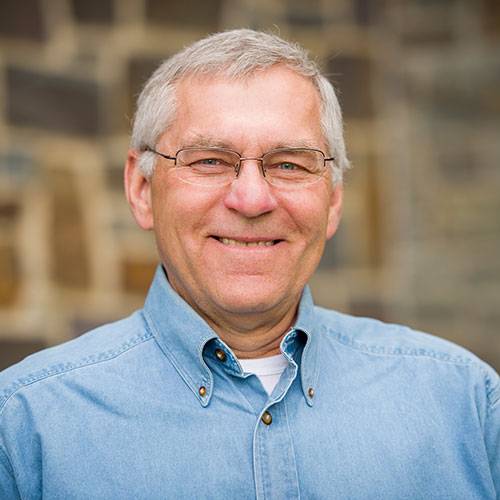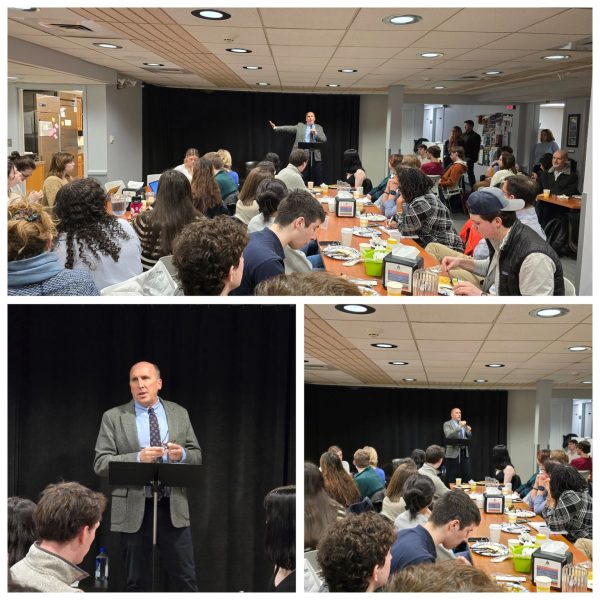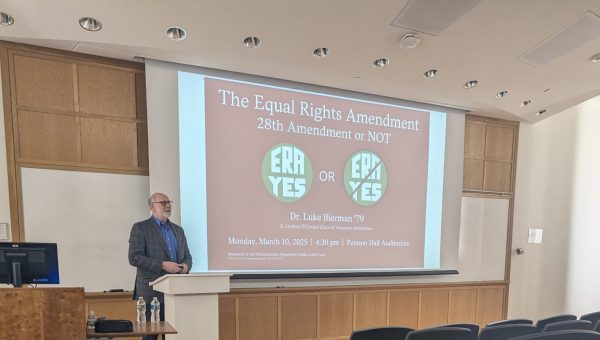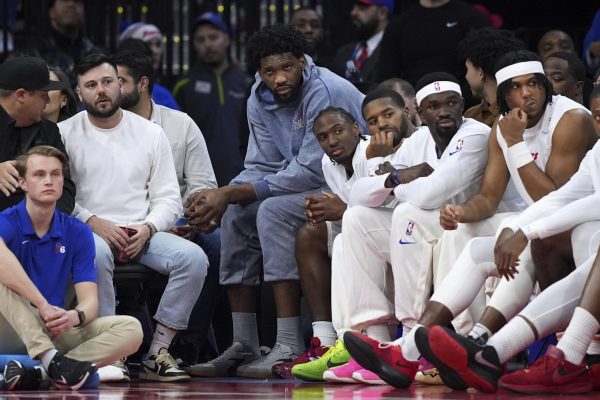Pre-Retirement, Professor Kraly Discusses Scholarship, Teaching and Service at NASC Colloquium
Professor F. Scott Kraly, Charles A. Dana Professor of Psychology and Neuroscience, delivered a lecture titled “Impure Thoughts on Scholarship, Teaching, Service: Eating, Drinking, Psychiatric Medicating Case Study of a 1st Gen” on Friday, March 3. Kraly, who will be retiring this summer, used the lecture to discuss lessons he learned at different points in his academic career.
“My mother warned me that my mouth was going to get me into trouble someday. Hundreds of times, she said, ‘Scott, your mouth is going to get you into trouble someday.’ Today’s talk could present the highest risk I’ve experienced of that, we’ll see,” Kraly said during his presentation.
Michelle Ovchinksy, a first-year student, attended the lecture due to her interest in neuroscience, which, along with psychological sciences, is one of Kraly’s focuses.
“I am a prospective neuroscience major and was hoping to gain greater insight into the subject at Colgate. Professor Kraly is an [exemplary] professor that focuses on this subject, and I wanted to hear more about his experience,” Ovchinsky said.
Professor Kraly, a self-described “educator of science,” rather than a scientist, filled his lecture with lessons for students and educators, which prompted many laughs from the audience.
“I’m kind of approaching this as a case study of a first-generation college student who happened to show up here and create a career. I want to do that with an emphasis on what the University considers to be important aspects of our jobs here — in some ways, important aspects of the job students do, too. That is, to be engaged in the classroom teaching, to have that teaching influenced by cutting-edge scholarship in your field and to also be serving the community in some way or the other,” Kraly said.
Cynthia Baker, Head Technician for the Department of Psychological and Brain Sciences, has worked with Kraly since he first started teaching at the University. She attended the colloquium and, afterward, spoke highly of his personality.
“Professor Kraly is a great person to work with. He has great humor and is easygoing. When I was first working with him, he had a lot going on. He was doing his teaching load and his own research and student thesis projects. He did have help with his research, so I was working with them also,” Baker said.
Kraly explained his interest in science began with the book “Watch Mr. Wizard,” which showed him science could be fun — a lesson he carried with him for his entire career.
“Fun was a prerequisite and I think it’s because my first experience with a scientist on television was that— nothing but fun,” Kraly said.
This spirit stuck out to attendees, who laughed often at the jokes included in Kraly’s lecture.
“I found Dr. Kraly’s lecture extremely interesting and witty. He told his informative scientific research story with humor. He emphasized how regardless of how difficult his research was, he always aimed to have fun,” Ovchinsky said.
When Kraly encountered experiences that were not as enjoyable, such as his time pursuing a master’s degree at Johns Hopkins University, he still found lessons in his experience, as shared during the lecture.
“My Ph.D. thesis research advisor taught me how to do research when resources were really, really slim. He taught me how to be practical and most importantly, for the rest of my career, he said to me, ‘You want to study a robust phenomenon.’ What he meant by that was, he wanted me to be sure that whatever I studied was something that would be available every day in the laboratory because it was robust,” Kraly said.
Another critical experience Kraly shared is when he interviewed for a tenured professor position at Colgate. He was the seventh person to be interviewed and had already declined to teach one of the courses they needed to be filled, yet he still got the job.
“After they offered me the job, I said, ‘Why? I’m surprised you interviewed me after I refused one of the courses you want [to be] taught.’ [The interviewer] said, ‘Oh yeah, what we learned with that answer is that you’re going to be honest with us.’ So they hired me! Lesson number four: know when a face-to-face approach is the best approach,” Kraly said.
One of Kraly’s final lessons was on the importance of doing things that may not advance your career on their own but provide contacts for future projects. Before the COVID-19 pandemic, Kraly worked with other Colgate staff to create an open, online course on the treatment of mental health. While Kraly did not interact with the course the same way he would an in-person one, he still marks it as important to his career development.
“Without that scholarship, my contributions to the core curriculum would not have happened and would not have evolved at all. My participation in the Task Force on Remote Learning also would not have happened; requiring the skills that I had acquired were important for me to be a valuable resource,” Kraly said.
Baker agreed and expanded on Kraly’s point.
“[You] can do great things in life without always having a plan,” Baker said.
While advertised as part of the Natural Sciences and Mathematics colloquium, Kraly spoke on a range of topics pertaining to his life. Kraly’s lecture imparted many lessons to the faculty and students — including Ovchinsky — who were in attendance.
“I found Professor Kraly’s work to be inspiring, and it definitely made me want to major in neurology more,” Ovchinsky said.
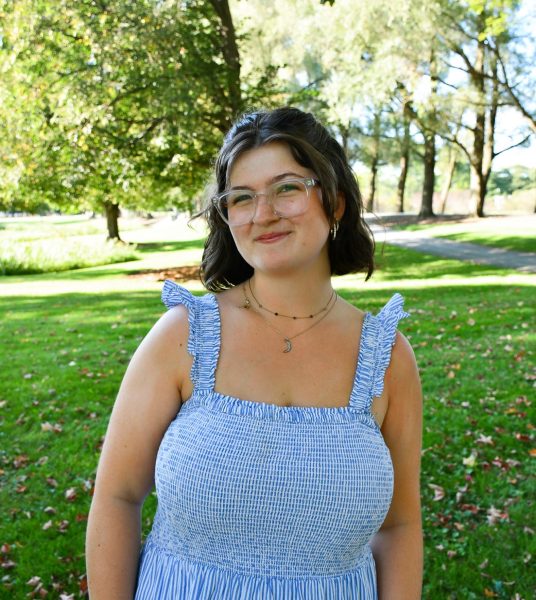
Emma McCartan is a junior from Guilford, Conn., concentrating in international relations and Middle Eastern and Islamic studies. She has previously served...


